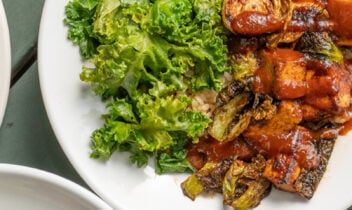
Is Orange Juice the New Superfood?
For decades, orange juice has been considered America’s favorite morning beverage; and while it’s solidified its spot as a tasty drink to complement a balanced breakfast, we often overlook its full nutritional value, particularly when it comes to its antioxidant content.
Oranges in their whole and juiced form are predominant sources of antioxidants in the diet1, and multiple studies have shown that the body absorbs the antioxidants better in its juice form2. Similar to other antioxidant sources such as acai berries and green tea, 100% orange juice is a steadfast superfood.
Many people may be unaware that there is a whole family of antioxidants within orange juice. One orange has more than 170 different phytochemicals and over 60 flavonoids, many of which have proven anti-inflammatory properties along with strong protective effects3. In fact, orange juice’s first claim to fame is its sky-high vitamin C content, an antioxidant that fights illness and heals wounds. The human body can’t generate vitamin C on its own, and unused vitamin C is lost through urine, meaning that we all need a continuous supply of it from our diet. A lack of vitamin C can lead to decreased infection-fighting ability, easy bruising and possible weight gain because of a slowed metabolism4.
One eight-ounce glass of 100% orange juice provides more than 100% of your daily vitamin C needs. That’s equal to approximately four medium tomatoes, more than one cup of kale or more than two cups of cauliflower. Drinking a cup of orange juice each day is an easy, foolproof and delicious solution to anyone struggling to get vitamin C in their diet.
Next up in orange juice’s antioxidant story is the growing body of research that supports orange juice’s positive impact on heart disease. Among orange juice’s many diverse antioxidants, the heart health property is most closely associated with hesperidin, a blood pressure-lowering agent5. A 2010 study in the American Journal of Clinical Nutrition demonstrated that consuming two cups of 100% orange juice every day for a month significantly lowered diastolic blood pressure among slightly overweight participants. Improvements were also seen among other heart health indicators, such as improved functioning of blood vessels. Interestingly, these heart outcomes were more prominently seen with orange juice as opposed to only consuming purified hesperidin. This indicates that there’s something significant about orange juice as a vehicle to deliver on this antioxidant’s potential6.
Today, orange juice is claiming even more power due to its antioxidant content. A recent study out of the University of Reading touts the brain-boosting abilities of 100% orange juice. Healthy, older adults who drank 100% orange juice throughout an eight week period, performed better on cognitive tasks. Again, these benefits were primarily credited to the antioxidants, flavanones, within orange juice7.
While there are a lot of warning signs popping up about juice in today’s headlines, it’s important to note that “juice” refers to a broad category of beverages that vary greatly in nutritional value as well as the impact they have on our health. But, as we’ve briefly discussed above, 100% orange juice has an abundance of superfood benefits, along with no added sugar or preservatives. Additionally, 100% orange juice is endorsed by the Dietary Guidelines for Americans as a way to meet the daily recommended fruit intake. Not all juices are created equal, and it’s critical that consumers not be tricked by label illusions.
When shopping in the juice aisle, look for “100% orange juice” to ensure you are getting only the goodness of freshly squeezed oranges.
Drink up!


